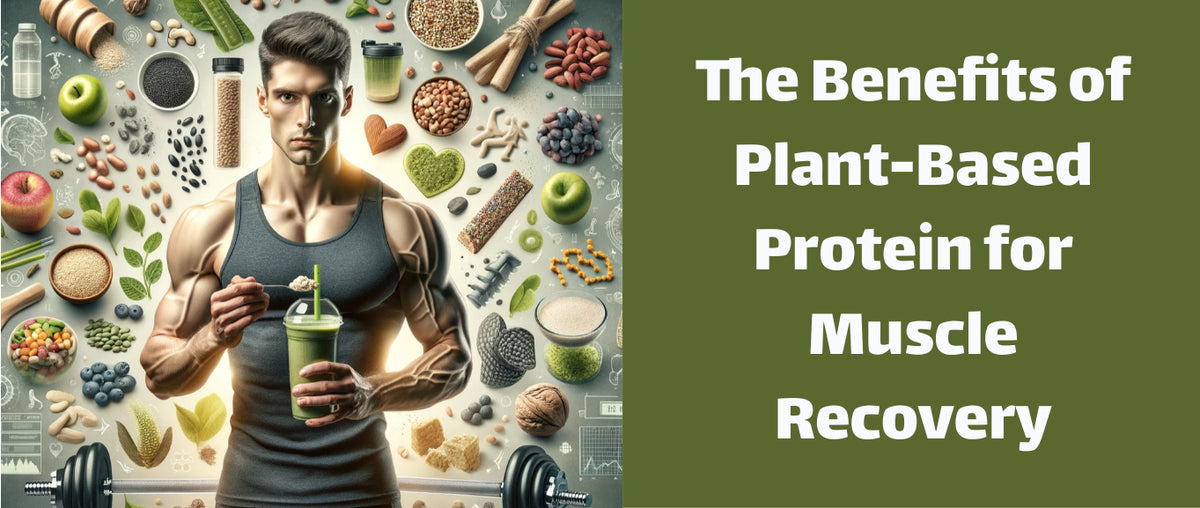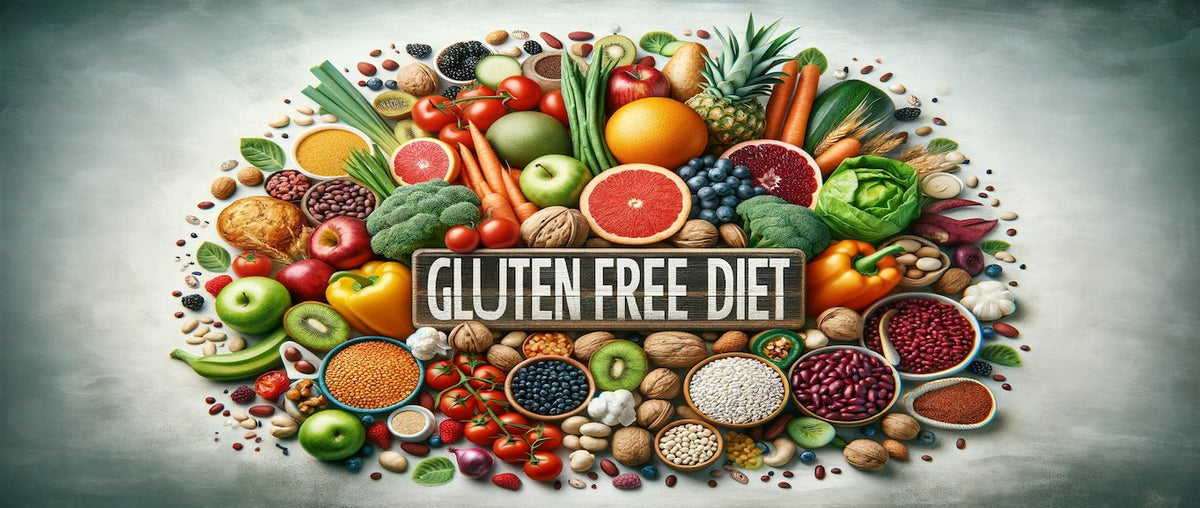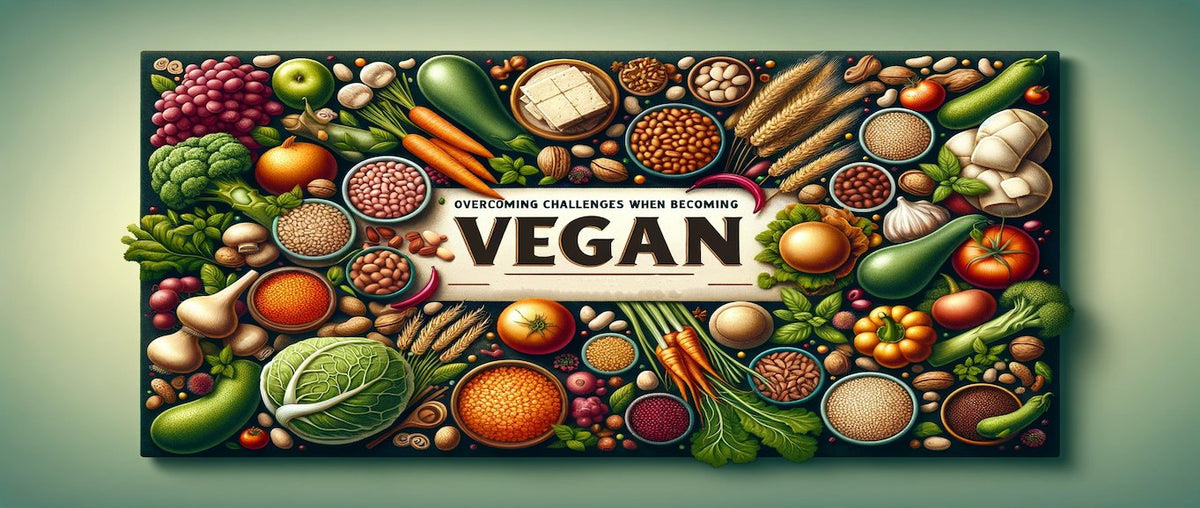The Benefits of Plant-Based Protein for Muscle Recovery
Embarking on a journey towards improved health and fitness, many individuals are turning their attention to the benefits of a vegan lifestyle, particularly within the realms of bodybuilding and weight loss. A vegan diet, characterized by its exclusion of all animal products, offers a sustainable and ethical path to achieving fitness goals. The allure of a Vegan Bodybuilding Diet lies in its ability to support muscle growth and recovery through plant-based proteins, while simultaneously offering the antioxidants and nutrients essential for overall wellness. Similarly, a Vegan Diet Plan for Weight Loss capitalizes on the natural low-calorie density of plant-based foods, facilitating a reduction in calorie intake without compromising on nutrition or satiety.
Adopting a vegan diet does not merely represent a dietary change but signifies a holistic lifestyle adjustment, aligning one's nutritional intake with environmental conservation and ethical considerations regarding animal welfare. This shift is increasingly recognized not just as a trend, but as a profound transformation in the way we approach fitness, health, and sustainability. Whether the goal is to sculpt a lean, muscular physique through vegan bodybuilding, shed excess weight with a focused vegan diet plan for weight loss, or simply to embrace a healthier lifestyle, the vegan diet offers a versatile and compassionate pathway to achieving varied fitness objectives.
Key Takeaways
- Essential Role of Protein in Muscle Recovery: Protein is crucial for repairing and building muscle tissue post-exercise. Plant-based proteins offer a valuable source of these essential nutrients.
- Comprehensive Nutritional Profile: Plant-based proteins come with additional health benefits not found in animal proteins, including dietary fiber, vitamins, minerals, and antioxidants, which can aid in the recovery process and overall health.
- Reduced Inflammation: The antioxidants and phytonutrients in plant-based proteins can help reduce inflammation, leading to faster recovery times and reduced muscle soreness after workouts.
- Health and Performance Benefits: Transitioning to a diet rich in plant-based proteins can improve heart health, reduce the risk of chronic diseases, support weight management, and potentially enhance athletic performance.
Understanding Muscle Recovery
The Science of Muscle Recovery
Muscle recovery is a critical process that begins immediately after your workout ends. It involves muscle repair, protein synthesis, and the replenishment of glycogen stores. The speed and efficiency of muscle recovery can significantly impact your fitness gains, performance, and overall health.
Importance of Protein in Muscle Recovery
Protein plays a pivotal role in muscle recovery. It provides the amino acids necessary for repairing muscle fibers and building new muscle tissue. The quality, amount, and timing of protein intake are crucial for optimizing muscle recovery and growth.
Plant-Based Proteins – An Overview
What Are Plant-Based Proteins?
Plant-based proteins are derived from vegetables, grains, nuts, seeds, and legumes. Unlike animal proteins, plant proteins come with a host of additional benefits, including fibers, vitamins, and minerals, contributing to a holistic approach to health and fitness.
Comparing Plant-Based and Animal Proteins
While animal proteins are known for their high biological value, plant-based proteins can match the efficacy of animal-based sources when consumed in a varied and well-planned diet. This section explores the differences in amino acid profiles, digestibility, and the impact on health and recovery.

Benefits of Plant-Based Protein for Muscle Recovery
Enhanced Recovery Process
Plant-based proteins provide not only the essential amino acids needed for Muscle Recovery but also anti-inflammatory compounds that can help speed up the recovery process. This chapter delves into how the antioxidants found in plant proteins can reduce muscle soreness and improve recovery times.
Improved Health Outcomes
Adopting a diet rich in plant-based proteins can lead to better heart health, reduced risk of chronic diseases, and improved weight management. These factors indirectly support muscle recovery by promoting overall health and wellbeing.
Sustainability and Ethical Considerations
Choosing plant-based proteins contributes to a more sustainable and ethical consumption pattern, reducing the environmental impact associated with animal farming and contributing to animal welfare.
Also Read
Incorporating Plant-Based Protein into Your Diet
Assessing Your Protein Needs
This section provides guidelines on how to calculate your protein requirements based on your fitness level, goals, and body composition.
Best Sources of Plant-Based Protein
Discover the top plant-based protein sources, such as lentils, chickpeas, quinoa, tofu, and tempeh, and learn how to incorporate them into your daily meals for optimal muscle recovery.
Tips for Maximizing the Benefits of Plant-Based Proteins
Learn about combining different plant proteins to ensure a complete amino acid profile, timing your protein intake for maximum recovery, and using supplements wisely.
Why Plant-Based Protein?
Nutritional Value
Plant-based proteins are an essential part of a healthy diet, providing not just the necessary amino acids for muscle repair and growth but also a range of other nutrients beneficial for overall health. Unlike their animal counterparts, plant proteins come with fiber, antioxidants, and less saturated fat. Foods like lentils, chickpeas, nuts, seeds, quinoa, and soy products offer a robust nutrient profile including iron, calcium, and essential fatty acids. Incorporating a variety of these plant based foods ensures a complete amino acid profile, essential for muscle recovery and overall health.
Digestibility and Absorption
One common misconception about plant-based proteins is their digestibility and nutrient absorption. However, studies have shown that when a variety of plant-based sources are consumed, the body can efficiently absorb and utilize these proteins. It's important to combine different plant proteins to ensure a complete amino acid profile, as some plant proteins may lack certain essential amino acids. Techniques such as soaking, sprouting, and fermenting can also enhance nutrient availability and absorption from plant-based foods.
Environmental and Ethical Considerations
Switching to plant-based proteins is not only beneficial for health but also for the environment. Plant-based diets have a lower carbon footprint compared to diets high in animal products, as they require less water, land, and energy to produce while emitting fewer greenhouse gases. Ethically, choosing plant-based proteins can contribute to animal welfare and promote a more sustainable food system. By opting for plant-based proteins, individuals can play a part in reducing the environmental impact and supporting ethical practices in food production.

Plant-Based Protein Sources
Legumes, Nuts, and Seeds
Legumes, nuts, and seeds are powerhouse sources of plant-based protein. For example, lentils and chickpeas not only offer a high protein content but are also rich in fiber, which aids in digestion and satiety. Nuts and seeds, such as almonds, chia seeds, and flaxseeds, are not only excellent protein sources but also provide healthy fats, vitamins, and minerals. These foods are versatile, can be easily incorporated into various meals, and are essential for a balanced plant-based diet.
Soy and Quinoa
Soy products like tofu, tempeh, and edamame are among the few plant sources considered to be a complete protein, meaning they contain all nine essential amino acids. Quinoa, a pseudocereal, is another complete protein that is gluten-free and high in fiber, making it a great option for those with gluten sensitivities. Both soy and quinoa are versatile ingredients that can be used in a wide range of recipes, from stir-fries to salads.
Supplements
For those concerned about getting enough protein from whole foods alone, plant-based protein supplements are an effective option. Powders made from pea, rice, hemp, or soy can be added to smoothies, baked goods, or meals to boost protein intake. It's important to choose supplements that are low in added sugars and artificial ingredients to maximize health benefits.
Conclusion
The transition to plant-based proteins is not merely a dietary choice but a lifestyle change that offers numerous benefits for muscle recovery, health, and the environment. By embracing plant-based proteins, you can achieve your fitness goals while contributing to a more sustainable and ethical world.
If you are a vegan, looking to dine something vegan in your city, check out our list of vegan restaurants in India.










